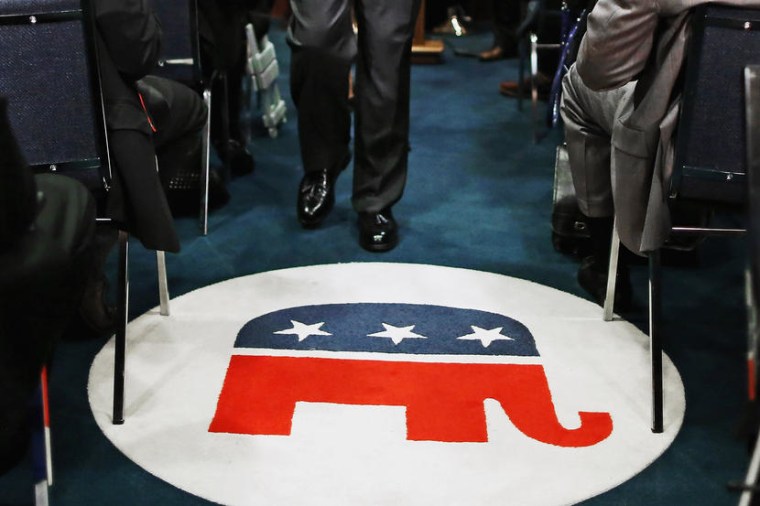Parties and politicians have long recognized elitism as an electoral loser. To gain public support, candidates present themselves as champions of "regular people" and "working-class families."
For Republicans, this is especially challenging for obvious reasons: GOP officials have spent years working to protect the wealthy and the powerful, and deriding Democratic efforts to help working families and expand social-insurance programs as "socialism."
From time to time, however, Republicans insist they can overhaul their "brand," and it appears we're in the midst of the latest such conversation. Axios recently ran this report, which caused a stir in GOP circles.
On a flight Tuesday from Indianapolis to Fort Wayne, Ind., two leaders in the House Republican conference discussed a memo that argues that their party's future demands they "embrace our new coalition" because "President Trump's gift didn't come with a receipt." ... The document, titled "Cementing GOP as the Working Class Party," leaves no doubt that Republicans — at least in the House of Representatives — will be doubling down on Donald Trump for the foreseeable future.
In broad strokes, the idea is that Trump was able to make significant gains among working-class voters, despite doing very little for them, and GOP officials believe they have an opportunity to capitalize on those shifts.
To that end, Rep. Jim Banks (R-Ind.), who leads the Republican Study Committee, prepared this memo for House Minority Leader Kevin McCarthy (R-Calif.), arguing that both parties are "undergoing coalitional transformations." Republicans, according to the pitch, can soon be seen as a less of a corporate party and more of a blue-collar party, which in turn would position the GOP for dramatic electoral gains.
The Wall Street Journal's Gerald Seib apparently believes the partisan opportunity is real, writing in his newest column, "Starting a couple of years ago, and increasingly since the coronavirus economic downturn, there has been a sprouting of new-wave conservative proposals designed to help working-class families, even if those plans required ditching traditional free-market economics and concerns about budget deficits."
To be sure, some of these proposals are real and worthy of scrutiny. Two months ago, for example, Sen. Mitt Romney (R-Mass.) sparked plenty of conversation with an unexpected proposal for a new monthly benefit for parents. Seib pointed to this and some related efforts as evidence of GOP policymakers "shattering traditional conservative economic positions."
Perhaps. But there's another way of looking at recent developments.
While Republicans may be interested in a "coalitional transformation," the fact remains that the party's agenda -- to the extent that the GOP even has an agenda -- remains wholly at odds with the interests of working-class families. Are Republicans lining up to support a minimum-wage increase? No. Are they done with their crusade to tear down the Affordable Care Act and strip millions of families of their health security? No. Are they embracing the Democrats' popular American Rescue Plan, which extended lifelines to struggling communities nationwide in the midst of a pandemic? No. Are they prepared to raise the corporate tax rate to invest in domestic infrastructure? No.
On the contrary, the only piece of legislation to generate enthusiastic support from most Senate Republicans in 2021 is a proposed repeal of the estate tax -- a change that would exclusively benefit multi-millionaires and billionaires.
It came on the heels of a December push among GOP senators in support of a "three-martini-lunch" provision in a COVID relief measure.
"Cementing" the GOP as "the working-class party"? C'mon.
What Republicans actually hope to do is stick to a tried-and-true strategy of wooing working-class voters with cultural wedge issues. It's why GOP leaders largely skipped the debate over the American Relief Plan and instead focused on Dr. Seuss, the Muppets, and "cancel culture."
We're likely to see more of the same in the coming months, largely because Republicans aren't serious about any other alternatives.

